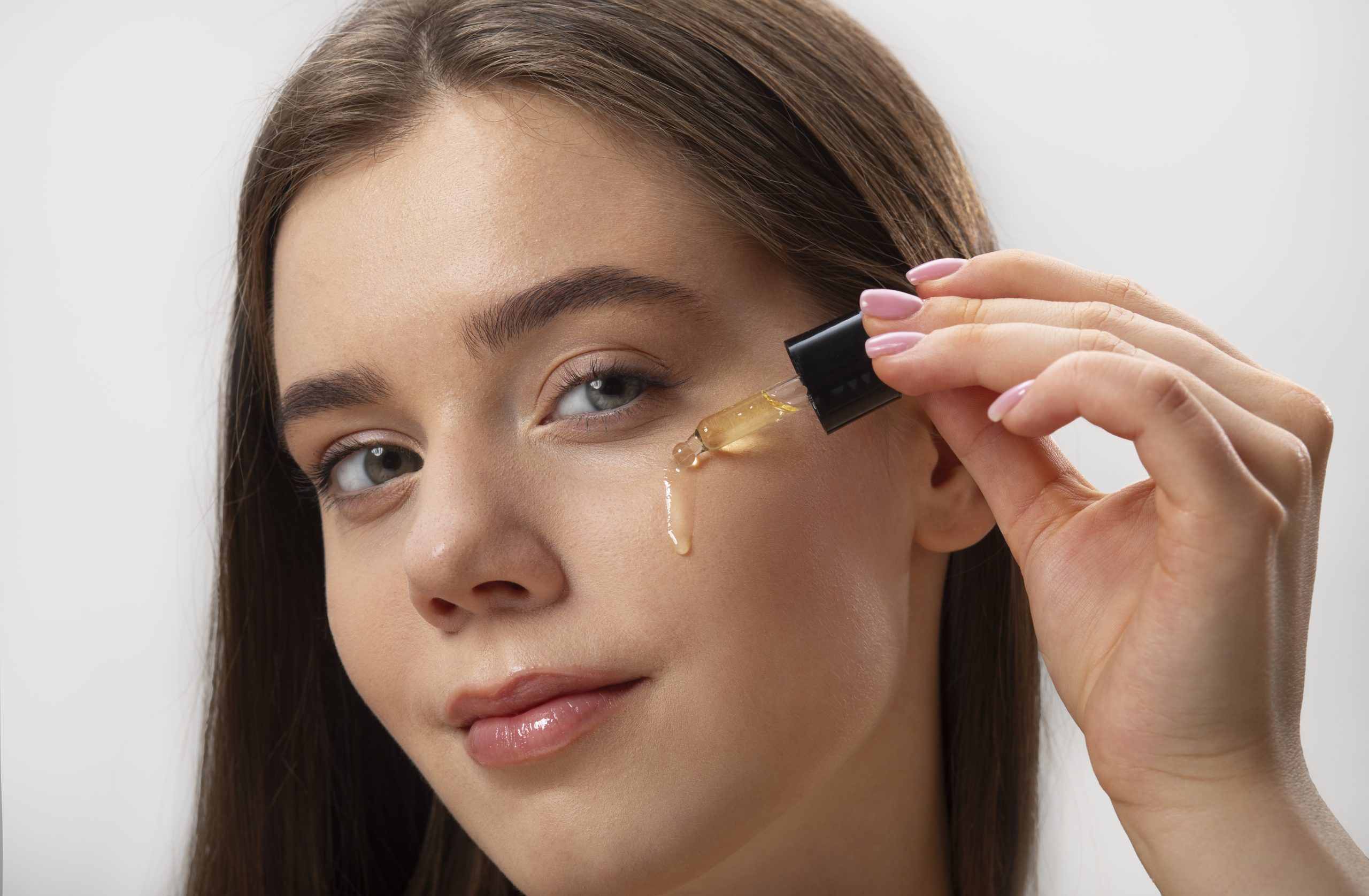
The serum is a powerful addition to any skincare routine. Both retinol and vitamin C continue to be major components in almost every skincare product because they both serve an important purpose for anti-aging and skin correction functions.
Serum helps recover skin with fine lines, wrinkles, uneven skin tone, and even some other textural issues.
This describes every specific aspect that’s sought after, assisting in the formulation of pathways toward the creation of a satisfying bespoke beauty regimen.

Retinol, a derivative of vitamin A, boosts cellular activity by stimulating collagen production, which in turn promotes collagen formation and skin cell turnover.
Wrinkles and Fine Lines: Retinol undoubtedly helps fade the signs of aging and gives the skin a plump, youthful look.
Pore Blockage Reduction: Retinol unclogs blocked pores caused by inflammation or swollen pores due to their size.
Reduction of Acne Scars: Retinol significantly improves skin pigmentation and thus improves dark patches and skin blemishes.
Betterment of Skin Texture Quality: Skin with a uniform, balanced texture, devoid of dead skin cell accumulation, is smooth.
Key Features of Vitamin C: Ascorbic acid is a very strong antioxidant that helps brighten the skin while guarding it from external factors. Important facts associated with vitamin C:
Serum makes the skin tone better and shinier, hence performing the toner function.
Vitamin C enhances the beautifully radiant skin pigmentation by improving skin tone and evening-out dark patches.
Calms inflammation and redness to protect sensitive and delicate skin.
Helps reduce wrinkles and improve skin firmness by supporting collagen synthesis to enhance the skin’s structure.
Aids in healing and faster recovery of acne scars, thus promoting the healing of wounds.

It works as a photoprotector, preventing skin damage from UV oxidative stress. It brings ageless beauty and increases skin sensitivity, making it ideal for use at night.
Best to use in the evenings due to the sensitivity to the sun. Increased sensitivity to the skin leads to easier sunburn and irritation. Sensitive skin requires a retinol-containing sunscreen. Prevents UV-related damage and helps reduce pigmentation after sun exposure.
Available in multiple forms and concentrations, making it easier to adapt to the varying requirements of the skin.
It usually comes in low concentrations, and higher amounts tend to irritate sensitive skin.
Retinol is not ideal for dry and sensitive skin types, as well as pregnant and lactating women.
Apply vitamin C without worry, especially for dry skin types; it’s perfect for daily use.
It must be used after skin cleansing and toning and before applying sunscreen.
The best time to use retinol is at night after moisturizing the skin.
Using a protective layer like moisturizer before applying retinol at night is best.
Surgical light exposes retinol over time, which lessens its effectiveness.
To avoid some form of inflammation, it’s best to gradually increase the use of retinol from lower concentrations.
Apply sunscreen liberally over the skin before exposing yourself to sunlight.
During retinol use, the nightly skin recovery process helps restore Vitamin C levels in the skin.
Can you use retinol and vitamin C together? Yes, but…
For smoother skin tolerance, it’s always recommended that the frequency be increased.
Regular use of vitamin C prevents skin from dulling. Skin luminosity improvement.
Astaxanthin improves collagen synthesis, increasing skin elasticity while retaining moisture. Vitamin C and pomegranate oil keep the skin supple.
Vitamin C is a potent antioxidant, and retinyl palmitate lifts, smoothing over lines. Astaxanthin and vitamin C provide enhanced protection against UV damage when used above retinol.
Using vitamin C with retinol can provide superior defense against damage. While sunscreen is vital, retinol amplifies sensitivity.
If you need a multitasking serum, select vitamin C. When paired with sunscreen, it enhances defense against photoaging and antioxidants.
Introducing new ingredients such as AHA or BHA into the routine alongside retinol increases irritation and breakout risks, so it should be done with caution.
Opt for retinol if:
You’ve noticed lines and wrinkles on the skin’s surface.
Skin-lifting and firming treatments are preferred.
Opt for vitamin C if:
You require boosted protection against UV exposure and oxidative stress all day while actively working to diminish hyperpigmentation.
Both can be included in the same routine, but the timing and frequency of application require special attention.
Also, consulting a dermatologist before using these products to determine suitability is vital.
Both vitamin C and retinol have been shown to be effective.
Ultimately, both retinol and vitamin C have been proven to provide many benefits.
One can combine both to devise a custom-tailored skincare regimen that maximally achieves the desired outcomes.
Frequently Asked Questions.
Q.1 Should I use vitamin C serum or retinol?
A. Use vitamin C in the morning and retinol at night if your skin can tolerate both. They work well together when used at different times of the day.
Q.2 At what age should I start using retinol?
A. The mid-20s to early 30s is a good time to start using low-strength retinol for preventative anti-aging.
If you have acne, you can start even earlier (around age 20) under a dermatologist’s guidance.
Always pair it with a moisturizer and sunscreen, as retinol makes your skin more sensitive.
Q.3 Is vitamin C or retinol better for dark circles?
Depends on the cause:
Many people benefit from combining both (vitamin C in the morning, retinol at night), plus a good eye cream.
Q.4 Should I use vitamin C vs retinol vs hyaluronic acid?
A. Use vitamin C in the morning to brighten and protect your skin.
Apply retinol at night to reduce wrinkles, acne, and improve texture.
Use hyaluronic acid anytime for deep hydration and plump, smooth skin.
Q.5 Is niacinamide or retinol better?
A. You can use niacinamide and retinol together — niacinamide can even reduce the irritation retinol sometimes causes.
Q.6 What should you not use vitamin C serum for?
A. Avoid vitamin C if:
.7 Can I use Retinol and Vitamin C serum together?
It’s not recommended to use both serums at the same time, as it can cause irritation. The best approach is to use Vitamin C serum in the morning and Retinol serum at night.
8. Which serum is better for sensitive skin?
Vitamin C serum is generally gentler and better suited for sensitive skin. Retinol serum can be too harsh, especially for beginners.
9. How long does it take to see results from these serums?
You may notice results from Vitamin C serum within 2–4 weeks. Retinol serum usually takes 6–8 weeks of consistent use to show visible improvements.
10. Is it necessary to use a moisturizer after applying serum?
Yes, applying a moisturizer after your serum helps lock in hydration and supports the skin barrier, making your skincare more effective.
No comments yet. Be the first to comment!

Recent Comments